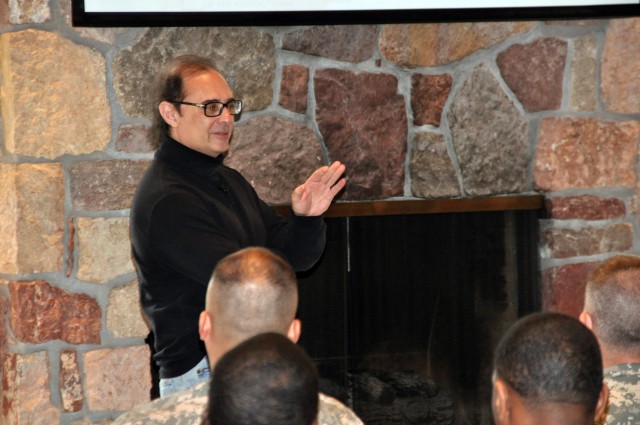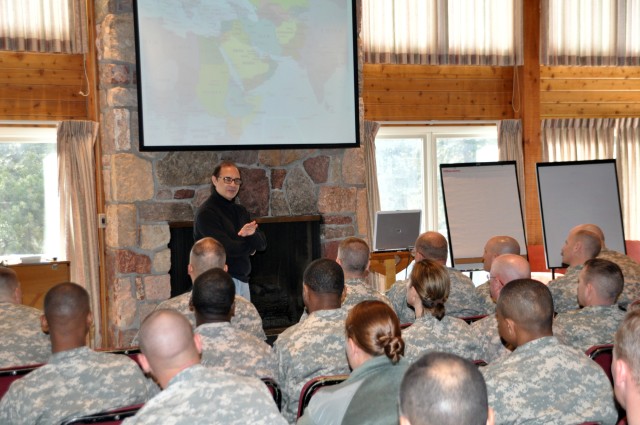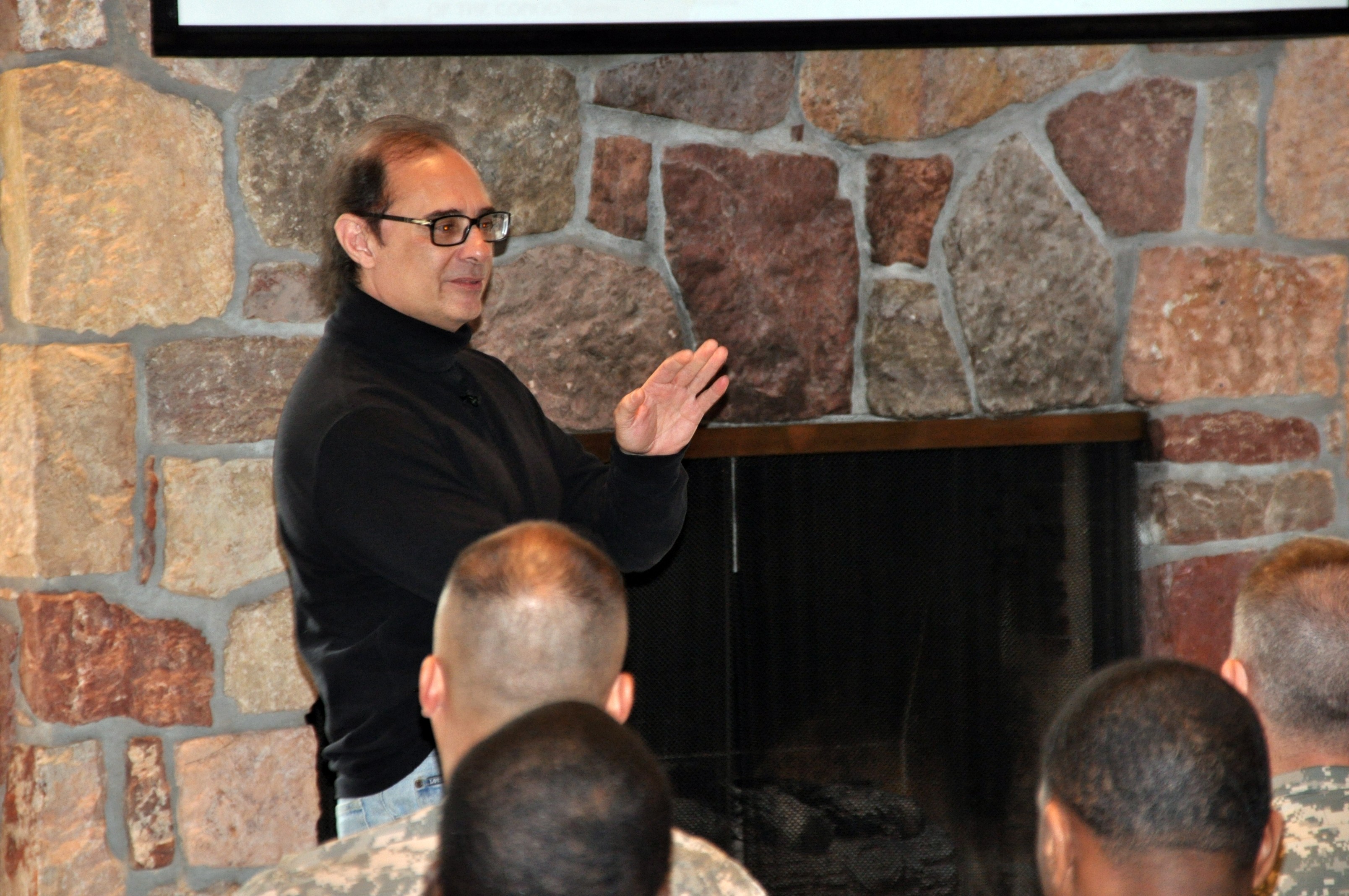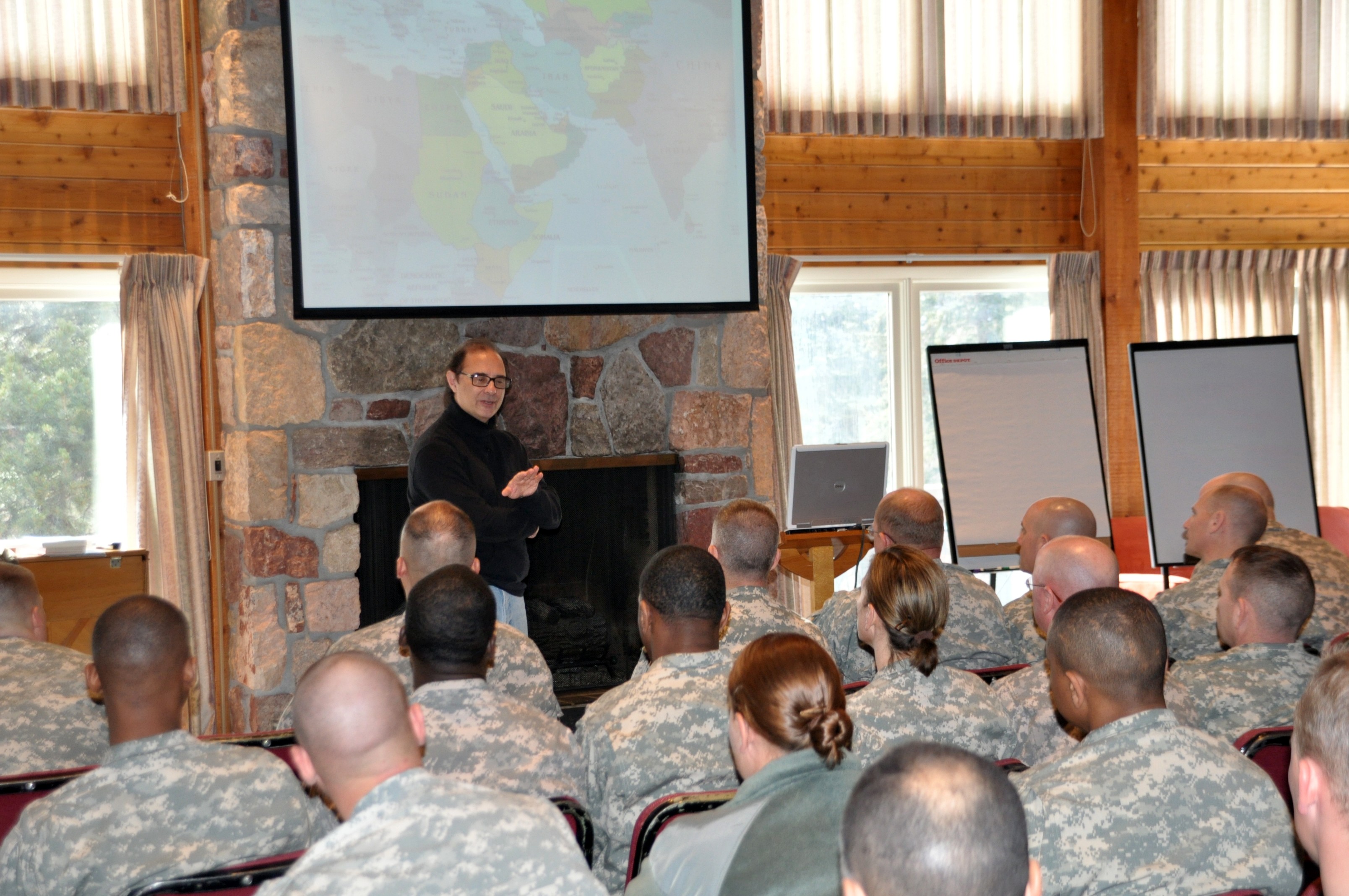FORT CARSON, Colo.-The history of the Middle East was shared with officers and senior noncommissioned officers of the 43rd Sustainment Brigade at the Navigator's Bighorn Lodge March 3.
Carl DeLorenzo, professor of history at St. Peter's Preparatory School, Jersey City, N.J., covered topics ranging from Greek and Roman influence in the region, all the way up to today's culture and society in the Middle East.
DeLorenzo started by explaining the endemic attitudes of both Americans and Middle Easterners, explaining why there is still a feeling of mistrust on both sides due to a lack of understanding of each other's cultures.
"We worked with (DeLorenzo) to bring him in here to speak to us about ... the history, and kind of the big picture of Afghanistan, and how it fits into the world," said Maj. Mike Anderson, brigade operations officer, 43rd SB, and coordinator of the event.
DeLorenzo said tribal conflict has been an ongoing issue even before 19th century European expansion. He said the current Middle East is a product of 19th century nationalism, but can also date back to earlier times, such as during the crusades.
He also said the region continued to be exploited by many civilizations throughout history, as the Greeks, Mongols, Turks, British and Russians all attempted to conquer it, which has led to the current mistrust many Middle Easterners still feel.
"The Afghan people have been through centuries of foreign occupation, so naturally they are going to be suspicious of anybody who comes in and claims to want to help them," said DeLorenzo. He also stated he thinks nationalism is not a rational feeling but an emotional one.
"There's a tendency to think myopically, one-dimensionally," said DeLorenzo. "(The Soldier's) obvious mission is combat, but ... combat in the traditional sense is not the way we are going to be successful. Combat is only part of the solution."
Anderson said the history lesson gives Soldiers a chance to be better prepared culturally when they deploy, which not only helps them gain the trust of Afghans, but helps with a broader, cultural understanding for each side.
"It gives (Soldiers) perspective. It's easy to get narrowly focused on what we're doing in our piece of the mission," said Anderson. "It's not just what we do, it's (the fact that) what we do impacts a much bigger picture."
"Whatever they learn here is something that they will be able to build upon because they're going to be able to recognize things that they otherwise wouldn't have recognized, had they not at least been given an introduction," said DeLorenzo. "These guys are going to come out of here realizing that patience is as much of a weapon as their M4s and M16s. Culturally you have to connect with people in order for them to understand why you are there."
DeLorenzo pushed that idea home throughout the lecture. Calling the region a battlefield of public opinion, he emphasized the need for both sides to understand each other better, both culturally and philosophically. This, he hoped, would allow for a deeper comprehension of the mission, as when he stated, "The best weapon is knowledge."
"I think at the tactical level ... it does reinforce that every action we take can either (create) a negative stereotype, or it can take one step forward for what we are trying to do," said Lt.
Col. Christopher Richardson, commander, provisional brigade headquarters, 43rd SB.
DeLorenzo spoke about the geography, history and ideology of Middle Eastern civilizations, saying influencing factors in that region were threefold - war, culture and history. The Soldiers who participated said they left the lecture with a much better understanding of not just the region, but the people as well.
"In order to win the hearts and minds, you can't be an isolated nation, or individual, or military," said Capt. Derek Enslow, engineer, 43rd SB. "You have to literally be out there with the public. We have our own idealisms, and we know what we bring to the table. But that's not good enough if we're not supporting the idealisms of the host nation (and) the people we're there to support."
After the lecture, DeLorenzo received the honorary title of colonel of the 43rd SB, something rarely offered to civilians in the history of the brigade.




Social Sharing